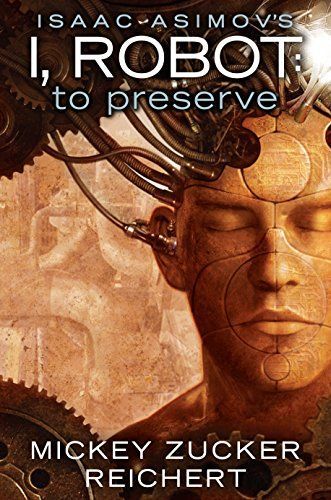
Isaac Asimov's I, Robot to Preserve
Nate, has been Manhattan Hasbro Hospital's resident robot for more than twenty years. Nate's very existence terrified most people, leaving the robot utilized for menial tasks and generally ignored. Until one of the hospital's physicians is found murdered with Nate standing over the corpse. As programmer of Nate's brain, Lawrence Robertson is responsible for his creation and arrested for the crime. Susan Calvin knows the Three Laws of Robotics make it impossible for Nate to harm a human. But maybe someone manipulated the laws to commit murder.
Reviews
Maggie Gordon@maggieg